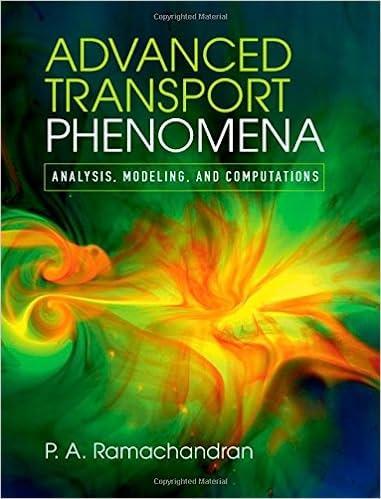Solve the following singular perturbation problem: [epsilon frac{d^{2} c_{mathrm{b}}}{d xi^{2}}=xi c_{mathrm{b}}-1] which arises in a model for
Question:
Solve the following singular perturbation problem:
\[\epsilon \frac{d^{2} c_{\mathrm{b}}}{d \xi^{2}}=\xi c_{\mathrm{b}}-1\]
which arises in a model for a consecutive reaction in a liquid film (Deen, 2011). Here \(c_{\mathrm{b}}\) is the concentration variable, \(\xi\) is the distance variable, and \(\epsilon\) is a small parameter.
The boundary conditions are that there is no flux for \(c_{\mathrm{b}}\) at both ends, viz., \(\xi=0\) and \(\xi=1\). Show that there are boundary layers at both sides ( 0 and 1 ), and that a different scaling is needed for each side. Obtain these solutions together with that for the inner region to the first needed level of approximation.
Plot your results for \(\epsilon=0.01\).
Answers from a numerical solution generated by BVP4C are provided for comparison: \(c_{\mathrm{b}}(0)=5.9782\) and \(c_{\mathrm{b}}(1)=1.1439\). You may also wish to run the BVP4C code to verify these results for extra practice.
Step by Step Answer:

Advanced Transport Phenomena Analysis Modeling And Computations
ISBN: 9780521762618
1st Edition
Authors: P. A. Ramachandran




